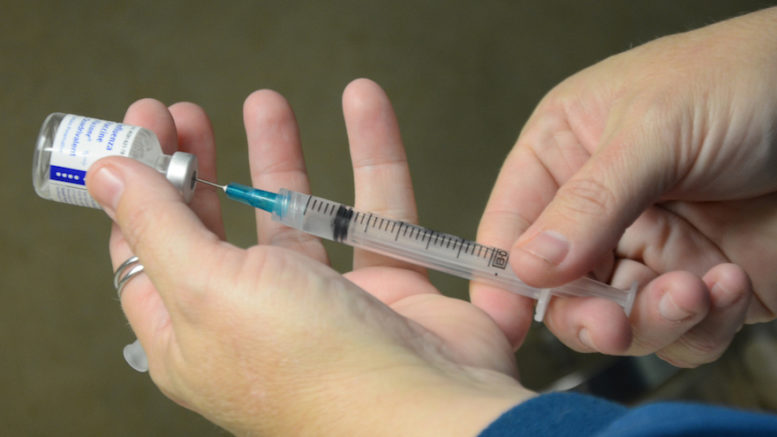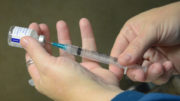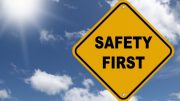By Jake Cardinal, Local Journalism Initiative Reporter
(ANNews) – On Feb. 19, the Alberta Government announced that 46,800 doses of the Pfizer vaccine will be arriving over the weekend; Phase 1 B of the Alberta vaccination plan will be rolling out immediately, with Phase 2 expected to begin in April.
People living in retirement centres, senior lodges and all other congregate or supportive living homes are now eligible for the vaccine.
And starting on Feb. 24, everyone born 1946 or earlier will be able to schedule their appointment.
“This is an exciting day for Alberta seniors and I hope it offers a real sense of relief for the thousands of family and friends who love them,” Premier Jason Kenney said.
“We have seen significant reduction in long-term care infections, outbreaks and deaths from COVID-19 over the past six weeks or so,” Kenney said.
“As you know, about two-thirds of deaths from COVID-19 in Alberta have occurred in those settings and we are very happy to see that since the vaccines began in long-term care centres that the number of infections, of outbreaks, of hospitalizations and of fatalities coming from long-term care has fallen dramatically,” Kenney said.
“We’re starting to see that population much safer thanks to the vaccine.”
As of Friday, Alberta has administered 155,532 doses of the COVID vaccine while 58,674 Albertans have been fully immunized with two doses – with 29,233 of those fully immunized Albertans being in long-term care and designated supportive living centres.
Phase 2 of Alberta’s vaccination plan – which is expected to begin in April depending on vaccine availability – will be for anyone aged 50 to 74, anyone with high-risk underlying health conditions, First Nations and Métis people aged 35 or older, and residents and staff of congregate living settings and eligible caregivers.
Phase 2 is divided into four groups:
- Group A: Albertans aged 65 to 74; First Nations and Métis people aged 50 to 64, on and off reserve or Métis settlements; Staff of licensed supportive-living facilities not included in Phase 1.
- Group B: Albertans aged 18 to 64 with high-risk underlying health conditions.
- Group C: Residents and staff of eligible congregate-living settings. This includes correctional facilities, homeless shelters, and group homes, including disability, mental health and other types of licensed supportive living. Health-care workers providing direct and acute patient care who have a high potential for spread to high-risk individuals. Caregivers of Albertans who are most at risk of severe outcomes.
- Group D: Albertans aged 50 to 64, no matter where they live. First Nations and Métis people aged 35 to 49 on and off reserve or Métis settlements.
According to Kenney, officials wanted to make sure that people who are at risk of the most severe health outcomes get the vaccine as quickly as possible.
“This is the same motivation that informed Phase 1 of the vaccine rollout, that is to say: protecting the most vulnerable,” said Kenney.
“I know that everyone wants to return to normal and be safe and be protected from the virus, but with a limited amount of vaccines, we must make difficult choices to ensure that those people who are most at risk are protected first, following the data and scientific advice,” Kenney said.
Health Minister Tyler Shandro also spoke on the Government’s thought-processes when it came to deciding who was next to receive the vaccine. “Some may question why we are targeting people in correctional facilities and homeless shelters,” Shandro said. “To us, it’s simple.”
“Albertans that live in congregate settings are at an increased risk of exposure and can easily and quickly transmit the virus within a large group and are more likely to have health conditions that could lead to severe outcomes from COVID-19.”
By the end of Phase 2 however, over two million Albertan’s will have received the chance to get immunized.
Also newsworthy is the current state of Alberta’s social restrictions. The province has reached outlined goals with the amount of COVID cases in hospitals. 352 Albertans are in the hospital with COVID-19, 55 of whom are in intensive-care units.
Alberta could ease restrictions as early as March 1 if the average number of COVID-19 hospitalizations in the preceding week remains below 450. That includes the easing of restrictions for retail, conference centres, hotels and banquet and community halls.
But the Premier warned that if there is an increase in the metrics of hospitalizations, infections, positivity rate or reproductive value, then that would cause a delay to the reopening.
“And if things were to get really bad and let’s say we end up with a huge spike in cases and hospitalizations driven by the more contagious variants, I’ve been clear we might need to introduce additional measures that limit social interaction.”
The concern among many are the variants of the COVID-19 disease. The B.1.1.7 strain, first found in the United Kingdom, could become Canada’s leading strain if jurisdictions don’t introduce more strict public-health measures warned The Public Health Agency of Canada.
As of Feb. 19, Alberta has detected 246 cases of the B.1.1.7 strain – through current and past tests – and 7 cases of the B.1.351 variant that originated in South Africa.
Dr. Deena Hinshaw, chief medical officer of health, said, “By making good choices this weekend and in the days ahead, we have the ability to keep numbers trending downward and keep protecting the health system that we all rely on.”







Be the first to comment on "Alberta announces vaccine rollout – Seniors age 75+ can book their shots starting Feb. 24"